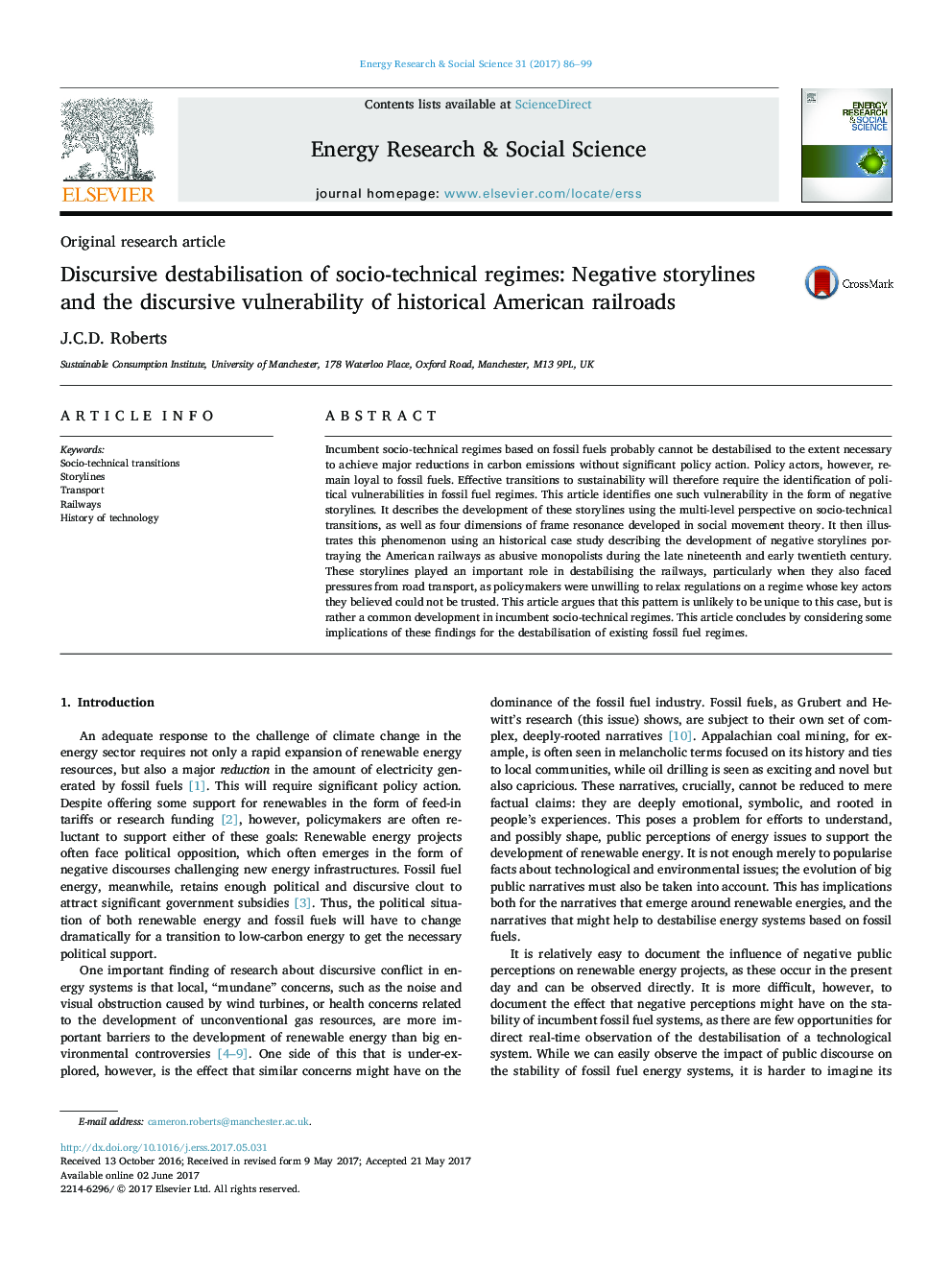| Article ID | Journal | Published Year | Pages | File Type |
|---|---|---|---|---|
| 6463838 | Energy Research & Social Science | 2017 | 14 Pages |
â¢Theories of regime discourses do not account for negative regime discourses.â¢The success of regime storylines is described using 4 elements of frame resonance.â¢Regimes are vulnerable to negative policy feedbacks due to negative storylines.â¢American railways were undermined by a storyline portraying them as monopolistic.
Incumbent socio-technical regimes based on fossil fuels probably cannot be destabilised to the extent necessary to achieve major reductions in carbon emissions without significant policy action. Policy actors, however, remain loyal to fossil fuels. Effective transitions to sustainability will therefore require the identification of political vulnerabilities in fossil fuel regimes. This article identifies one such vulnerability in the form of negative storylines. It describes the development of these storylines using the multi-level perspective on socio-technical transitions, as well as four dimensions of frame resonance developed in social movement theory. It then illustrates this phenomenon using an historical case study describing the development of negative storylines portraying the American railways as abusive monopolists during the late nineteenth and early twentieth century. These storylines played an important role in destabilising the railways, particularly when they also faced pressures from road transport, as policymakers were unwilling to relax regulations on a regime whose key actors they believed could not be trusted. This article argues that this pattern is unlikely to be unique to this case, but is rather a common development in incumbent socio-technical regimes. This article concludes by considering some implications of these findings for the destabilisation of existing fossil fuel regimes.
